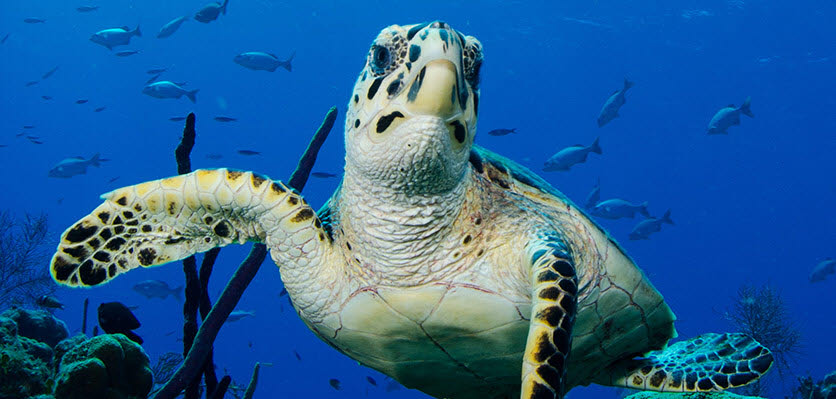
Researchers from the James Cook University Turtle Research Facility have carried out a world first trial using phage therapy to treat bacterial infections in green sea turtles.
Phage therapy uses bacteriophages which are naturally occurring viruses that infect and kill bacteria. Green sea turtles rely on ‘good’ bacteria in their gut to help digest food and extract nutrients.
Broad-spectrum antibiotics are routinely used as a general treatment for unwell green sea turtles as accurate diagnosis of the disease is difficult. However, when antibiotics are used, they not only kill the ‘bad’ bacteria but also the ‘good’ bacteria in the turtles gut and this can then worsen their health.
The researchers compared the gut bacteria populations of two groups of turtles after one group received treatment with the broad-spectrum antibiotic, enrofloxacin, and the other group underwent phage therapy.
It was found that throughout the study, phage therapy-treated turtles had no significant difference in diversity of gut bacteria compared to the control group and showed reduced levels of the targeted bacterial species.
This contrasts with the enrofloxacin-treated group which showed a significant reduction in bacterial diversity throughout the study. The results of the study are promising as it shows that phage therapy can be used as a safe and effective way to treat targeted gut bacteria in green sea turtles.
This therapy may also prove useful in the fight against antibiotic resistance, as resistant bacteria have been identified in the guts of green sea turtles in several locations on the Queensland coast.
